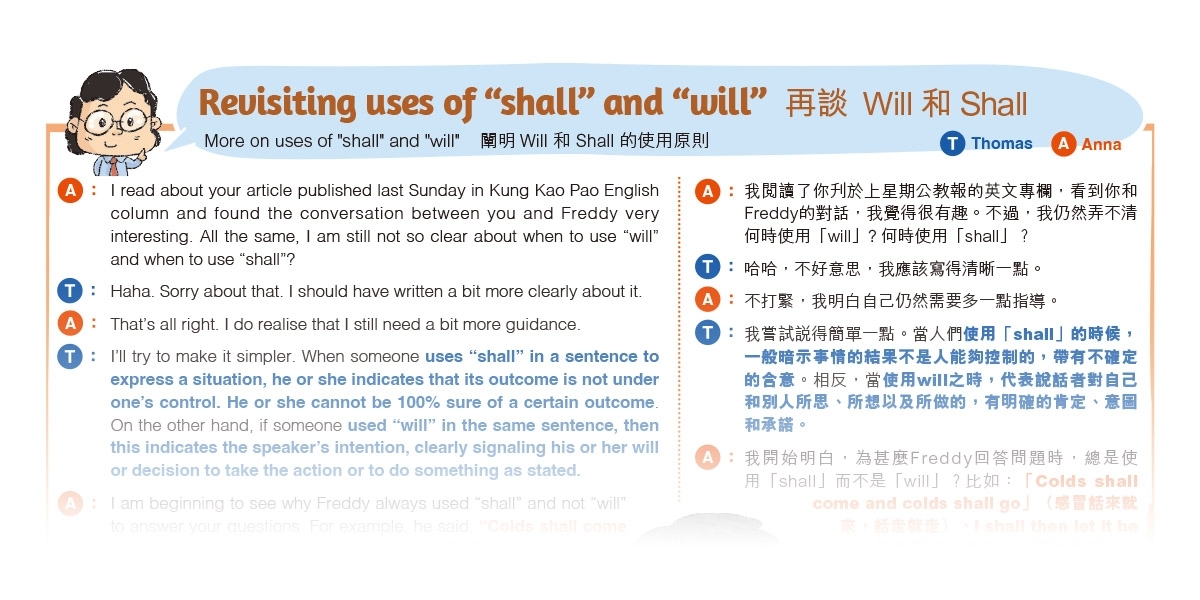
Revisiting uses of “shall” and “will”
再談 Will 和 Shall
More on uses of "shall" and "will" 闡明Will 和 Shall 的使用原則
T: Thomas, A: Anna
A: I read about your article published last Sunday in Kung Kao Pao English column and found the conversation between you and Freddy very interesting. All the same, I am still not so clear about when to use “will” and when to use “shall”?
T: Haha. Sorry about that. I should have written a bit more clearly about it.
A: That’s all right. I do realise that I still need a bit more guidance.
T: I’ll try to make it simpler. When someone uses “shall” in a sentence to express a situation, he or she indicates that its outcome is not under one’s control. He or she cannot be 100% sure of a certain outcome. On the other hand, if someone used “will” in the same sentence, then this indicates the speaker’s intention, clearly signaling his or her will or decision to take the action or to do something as stated.
A: I am beginning to see why Freddy always used “shall” and not “will” to answer your questions. For example, he said, “Colds shall come and colds shall go”; and “I shall let it be”. That’s because he wasn’t sure himself when he would fall sick, and when he would get well again.
T: As a matter of fact, there are some more principles regarding such uses. But I am short on time today. Why don’t you come to my office next week and we’ll chat again.
A: Ah right. See you next week.
A: 我閱讀了你刋於上星期公教報的英文專欄,看到你和Freddy的對話,我覺得很有趣。不過,我仍然弄不清何時使用「will」? 何時使用「shall」?
T: 哈哈,不好意思,我應該寫得清晰一點。
A: 不打緊,我明白自己仍然需要多一點指導。
T: 我嘗試說得簡單一點。當人們使用「shall」的時候, 一般暗示事情的結果不是人能夠控制的,帶有不確定的含意。相反,當使用will之時,代表說話者對自己和別人所思、所想以及所做的,有明確的肯定、意圖和承諾。
A: 我開始明白,為甚麼Freddy回答問題時,總是使用「shall」而不是「will」?比如:「Colds shall come and colds shall go」(感冒話來就來,話走就走)、I shall then let it be (我會順其自然吧)。因為當時他也不確定自己何時生病,何時康復。
T: 其實,何時使用Will和Shall,還有其他的原則。今天我趕時間,不如下星期到我辦公室,我們再談一談。
A: 好啊!下星期見。






